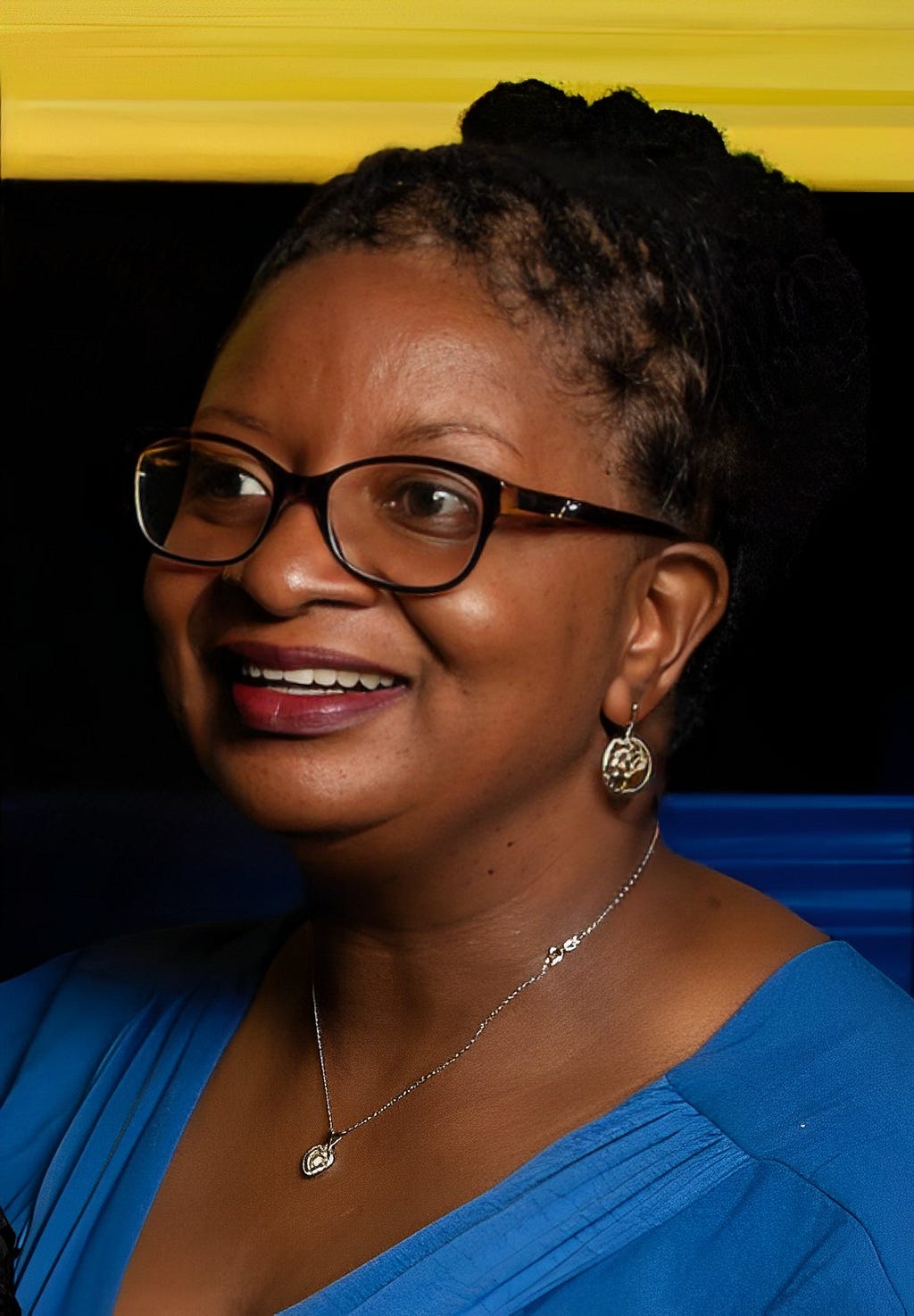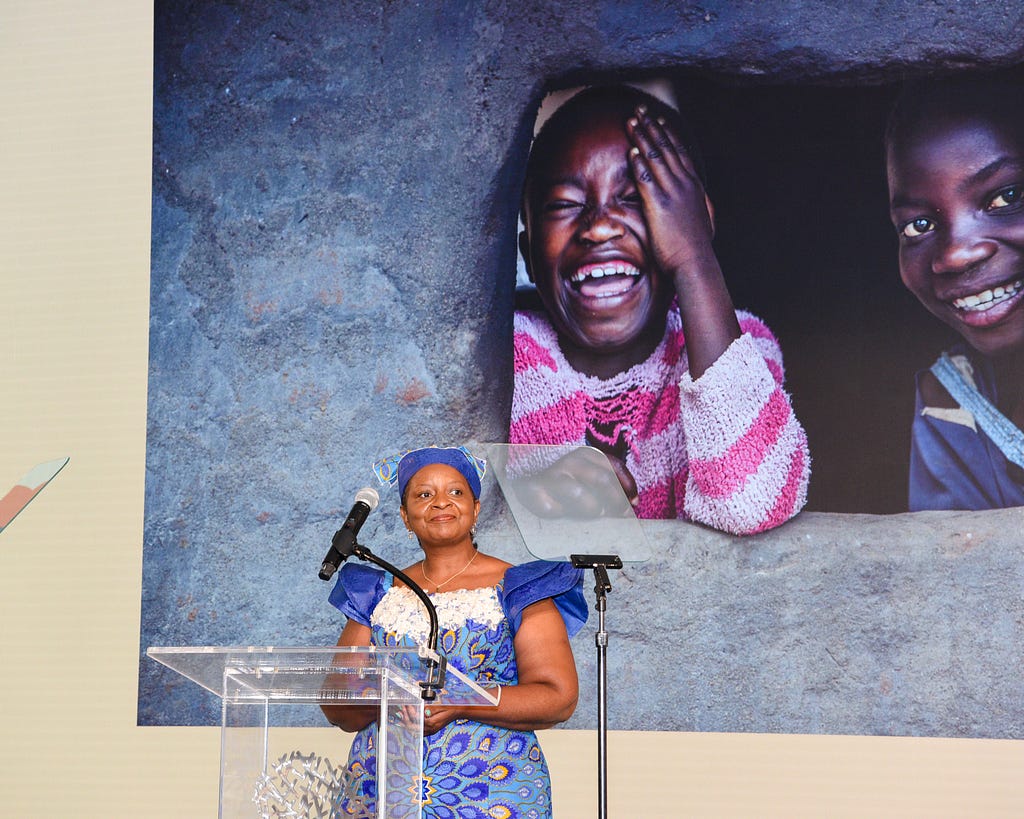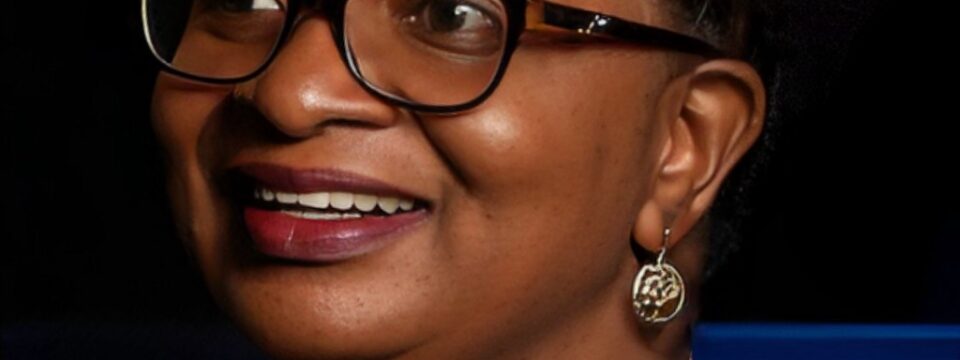
That hard work is not enough. The work that we do is not classroom work where you sit in a corner, study hard and pass an exam. It is about getting immersed in what you are doing, finding different answers every day from the same problem.
As part of my series about “individuals and organizations making an important social impact”, I had the pleasure of interviewing Gertrude Kabwazi.
Gertrude joined Yamba Malawi in 2019 with over twenty-five years of experience as a development practitioner and social justice activist. With a Masters in Women’s Law from the University of Zimbabwe, B.A. in Human and Social Studies with a concentration in Development Studies from the University of South Africa, University Diploma in Journalism from University of Malawi, and Certificate in Education Policy from University of Witwatersrand, South Africa, Gertrude’s breadth of expertise and leadership roles serves Yamba Malawi’s holistic approach to breaking the cycle of poverty.
Having been recognized as an African Visionary Fellow with Segal Family Foundation and a Perennial Fellow, in addition to serving on a number of Boards — including the Malawi Union of Academic and Non-Fiction Authors, Integrity Platform (Affiliate of Transparency International), World Bicycle Relief-Buffalo Bicycles, Women and Law in Southern Africa (WILSA), Coalition of Women Living with HIV and AIDS (COWLHA), and Concerned Youth Organisation — her expertise in working with both local and international organizations uniquely positions her to lead the program team, develop community-focused interventions and activities, and serve thousands of children each year.
Thank you so much for joining us in this interview series! Can you tell us a story about what brought you to this specific career path?
Growing up in rural Malawi in the community Dedza, I experienced poverty during my childhood similar to the program participants enrolled in Yamba Malawi’s programs, and therefore know firsthand how critical our work is in these communities. I value the education I was able to receive, and I had a support system to build upon opportunities and eventually forge my career. I couldn’t imagine as a child having graduated from a university. Opportunities unfolded by education, and I knew I wanted to support children, like me. Now, with over 25 years of experience in nonprofits, I am excited about the impact Yamba Malawi is making by supporting people with an opportunity to change their own life.
Can you share the most interesting story that happened to you since you began leading your company or organization?
I had been on the Yamba Malawi team but came to lead the organization during the COVID-19 pandemic. To take on a new role, I, however, want to acknowledge the disruption COVID-19 brought in the sector. It tested our resilience and adaptability which were the special ingredients that helped me navigate the past two years. As a newly appointed Executive Director, it challenged me to acquire new ways of doing business, including working from home, implementing new safety protocols for our program participants, while continuing to be relevant in development agendas including the racial justice movement.
It has been said that our mistakes can be our greatest teachers. Can you share a story about the funniest mistake you made when you were first starting? Can you tell us what lesson you learned from that?
When I just started working with households, I assumed that the program needed to pay more attention to women in female headed-households than those in male headed-households. However, evidence has shown that married women also experience gendered vulnerabilities. The lesson I learned was that we should not homogenize social groups (i.e. treating women using wholesale approach), as every social group has small social identities that we need to pay attention to. I initially divided the women in two social categories, i.e. women in female headed households versus women in male headed households (married). However, the women in male and female headed households bear different social identities, experience vulnerabilities differently to uniformly. Indeed, learning from mistakes is essential to building and growing an organization and a movement.
Can you describe how you or your organization is making a significant social impact?
Yamba Malawi is dedicated to ending childhood poverty. By breaking the cycle of poverty for children so they can reach their full potential. Our holistic, community-based programs support caregivers with parenting skills, financial coaching, and business training with start-up capital. Caregivers earn a sustainable income and can invest in their children’s futures. Last year, we reached over 55,000 children.
Can you tell us a story about a particular individual who was impacted or helped by your cause?
Emelida Gilibati is a 24-year-old mother of two children Trinity (3 years) and Tiyamike (6 years) and lives in the community of Khongoni, Lilongwe District. Prior to joining the Yamba Malawi program at the end of 2020, Emelida struggled to pay for school fees and new clothes for her children. She did not have access to a bike to bring her children to receive medical services when they were sick. Now, a year into the program, Emelida has received training, one-on-one coaching, and start-up capital to launch her fish mongering business. With profits from her new business, she can ensure her children have enough nutritious food and pay for her children’s school. Better yet, her children are thriving at school and have passed their classes.
Are there three things the community/society/politicians can do to help you address the root of the problem you are trying to solve?
- To own the problems and help find solutions around how to end child poverty.
- Treat child development issues as a priority, with a sense of urgency.
- Focus on the root causes of poverty to prevent the next generation.
How do you define “Leadership”? Can you explain what you mean or give an example?
Leadership is ushering the people around you in the right director. Leadership is not just about sharing your vision as most people say. It is about, first of all, setting the right vision; and setting an achievable, meaningful, impactful mission. And assuring everyone and demonstrating that “we will get there”, giving them reason and motivation to get there.
What are your “5 things I wish someone told me when I first started” and why. Please share a story or example for each.
- That development work is passion that becomes an obsession.
- That in development work, today’s solution may become a problem tomorrow, so we should always stay awake.
- That hard work is not enough. The work that we do is not classroom work where you sit in a corner, study hard and pass an exam. It is about getting immersed in what you are doing, finding different answers every day from the same problem.
- Passion first. Yes, money is needed but passion will enable you to find fulfilment in what you do. If you chase money, you will forever chase it like the wish to touch a rainbow.
- Take the best decision with the information you have. Hindsight is always 20/20, it’s better to continue making progress than avoid making decisions for the need to be perfect.
You are a person of enormous influence. If you could inspire a movement that would bring the most amount of good to the most amount of people, what would that be? You never know what your idea can trigger. 🙂
The movement to end child poverty. So many issues stem from child poverty such as homelessness, lack of proper nutrition, healthcare, access to education, increase in crime, and more. By addressing the root cause of child poverty, we are addressing the very fundamental issues of humanity. Catching it before it falls.
Can you please give us your favorite “Life Lesson Quote”? Can you share how that was relevant to you in your life?
“We should always strive to strike a balance between the head and the heart.”

Is there a person in the world, or in the US with whom you would like to have a private breakfast or lunch with, and why? He or she might just see this, especially if we tag them. 🙂
Adichie Chimamanda, a Nigerian Author based in the US. She speaks to my values of humanity. She inspires me to move from the corner to the center, she champions equity and inclusivity. The same value through which we work on ending child poverty.
How can our readers further follow your work online?
To stay connected, you can read more at yambamalawi.org and sign up for our newsletter. You can also follow us on social @yambamalawi. For any questions, email us at [email protected].
This was very meaningful, thank you so much. We wish you only continued success on your great work!
Social Impact Heroes: Why & How Gertrude Kabwazi of Yamba Malawi Is Helping To Change Our World was originally published in Authority Magazine on Medium, where people are continuing the conversation by highlighting and responding to this story.
